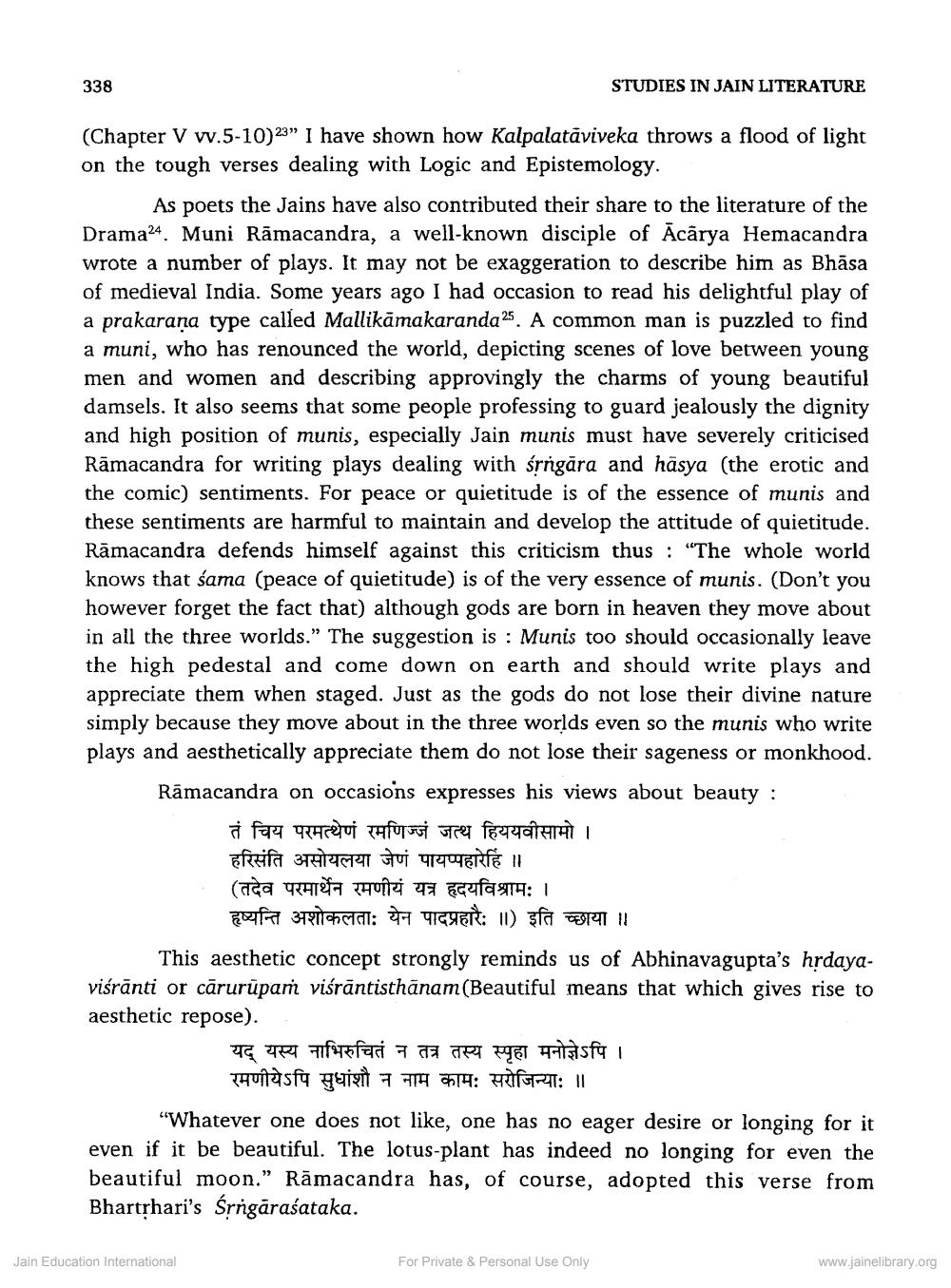________________ 338 STUDIES IN JAIN LITERATURE (Chapter V w.5-10)23" I have shown how Kalpalataviveka throws a flood of light on the tough verses dealing with Logic and Epistemology. As poets the Jains have also contributed their share to the literature of the Drama24. Muni Ramacandra, a well-known disciple of Acarya Hemacandra wrote a number of plays. It may not be exaggeration to describe him as Bhasa of medieval India. Some years ago I had occasion to read his delightful play of a prakarana type called Mallikamakaranda25. A common man is puzzled to find a muni, who has renounced the world, depicting scenes of love between young men and women and describing approvingly the charms of young beautiful damsels. It also seems that some people professing to guard jealously the dignity and high position of munis, especially Jain munis must have severely criticised Ramacandra for writing plays dealing with srrgara and hasya (the erotic and the comic) sentiments. For peace or quietitude is of the essence of munis and these sentiments are harmful to maintain and develop the attitude of quietitude. Ramacandra defends himself against this criticism thus ; "The whole world knows that sama (peace of quietitude) is of the very essence of munis. (Don't you however forget the fact that) although gods are born in heaven they move about in all the three worlds." The suggestion is : Munis too should occasionally leave the high pedestal and come down on earth and should write plays and appreciate them when staged. Just as the gods do not lose their divine nature simply because they move about in the three worlds even so the munis who write plays and aesthetically appreciate them do not lose their sageness or monkhood. Ramacandra on occasions expresses his views about beauty : तं चिय परमत्थेणं रमणिज्जं जत्थ हिययवीसामो / हरिसंति असोयलया जेणं पायप्पहारेहिं // (तदेव परमार्थेन रमणीयं यत्र हृदयविश्रामः / हृष्यन्ति अशोकलता: येन पादप्रहारैः // ) इति च्छाया // This aesthetic concept strongly reminds us of Abhinavagupta's hrdayavisranti or carurupam visrantisthanam (Beautiful means that which gives rise to aesthetic repose). यद् यस्य नाभिरुचितं न तत्र तस्य स्पृहा मनोज्ञेऽपि / रमणीयेऽपि सुधांशौ न नाम काम: सरोजिन्याः // "Whatever one does not like, one has no eager desire or longing for it even if it be beautiful. The lotus-plant has indeed no longing for even the beautiful moon." Ramacandra has, of course, adopted this verse from Bhartrhari's Srrgarasataka. Jain Education International For Private & Personal Use Only www.jainelibrary.org




